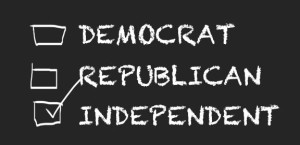The Aftermath of Hate & Terror
June 13, 2016 Leave a comment
On Sunday morning I walked into work and immediately saw the news: 49 dead; 53 wounded at a mass shooting in Orlando that is being called a domestic terrorist attack. I felt numb and was shocked. For hours, I have sat here wondering what there is to even say.
Some words by Robert F. Kennedy came to mind from a speech he gave the night after Martin Luther King, Jr. was assassinated. “It is not the concern of any one race. The victims of the violence are black and white, rich and poor, young and old, famous and unknown. They are, most important of all, human beings whom other human beings loved and needed. No one – no matter where he lives or what he does – can be certain who will suffer from some senseless act of bloodshed. And yet it goes on and on.” (Full text of RFK’s speech)
Politics will, in the end, find its way into this horrible atrocity. Both sides will back into their proverbial corners and begin spouting their typical talking points. The left will start talking about more gun control and hate crimes. The right will focus on Americans needing easier access to guns to protect themselves and radical Islam. Neither of these are actual solutions and only work to prohibit further discussion. As we have seen many other times, we talk today but do nothing tomorrow.
“Yet we seemingly tolerate a rising level of violence that ignores our common humanity and our claims to civilization alike. We calmly accept newspaper reports of civilian slaughter in far off lands. We glorify killing on movie and television screens and call it entertainment. We make it easy for men of all shades of sanity to acquire weapons and ammunition they desire.” Robert F. Kennedy~
In truth there is no easy solution. I wish I had one to make the pain and suffering go away. But as we move forward, we must allow common sense into the discussion. Our regular talking points have been worn out and have become a burden on making any progress.
In the US we have the constitutional right to bear arms. Common sense says that there must be a solution to gun violence that will uphold our right yet not arm the entire public. I don’t really want to be a part of a society where everyone must be armed all the time in order to protect themselves.
“We must admit the vanity of our false distinctions among men and learn to find our own advancement in the search for the advancement of all. We must admit in ourselves that our own children’s future cannot be built on the misfortunes of others. We must recognize that this short life can neither be ennobled or enriched by hatred or revenge.” Robert F. Kennedy~
Our emotions are running high. They range from disbelief to sadness to anger. And though it is normal and appropriate for these feelings we must not give in to them. If we allow ourselves to follow that path of darkness then we will become no better than the gunman as anger can only lead to more hatred and to more violence.
Today, I choose to be open in my political discourse on guns and our Second Amendment right. I acknowledge that there is not a single solution or an easy one. And I choose to see the light and the good in my fellow man. It was Anne Frank that wrote,”[I]n spite of everything I still believe that people are really good at heart.”


 There was no changing of Facebook statuses for the other places or a public outcry of grief. While we publicly announce that we stand with Brussels, we stay silent of standing with the people in these other places that have suffered in the exact same way and from the exact same militant religious extremists.
There was no changing of Facebook statuses for the other places or a public outcry of grief. While we publicly announce that we stand with Brussels, we stay silent of standing with the people in these other places that have suffered in the exact same way and from the exact same militant religious extremists. Keep in mind that the next President will not be sworn in until January 2017, just under a year away. The longest confirmation hearing in modern times was Justice Clarence Thomas at 100-days. This would be triple the amount of time just to wait for a nomination let alone the confirmation hearing and a vote.
Keep in mind that the next President will not be sworn in until January 2017, just under a year away. The longest confirmation hearing in modern times was Justice Clarence Thomas at 100-days. This would be triple the amount of time just to wait for a nomination let alone the confirmation hearing and a vote. It essentially doesn’t matter which candidate wins the presidential election in November when it comes to this simple question. It all hinges on the Senate. Regardless if the winning candidate’s party is in control of the chamber, the opposition will still have enough to invoke the filibuster. And there is the possibility that the opposition could be in control of the chamber as well. Neither side will have a filibuster-proof majority.
It essentially doesn’t matter which candidate wins the presidential election in November when it comes to this simple question. It all hinges on the Senate. Regardless if the winning candidate’s party is in control of the chamber, the opposition will still have enough to invoke the filibuster. And there is the possibility that the opposition could be in control of the chamber as well. Neither side will have a filibuster-proof majority.